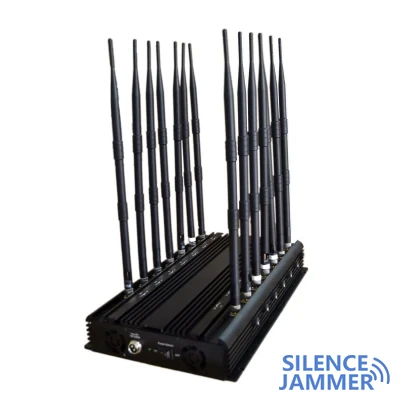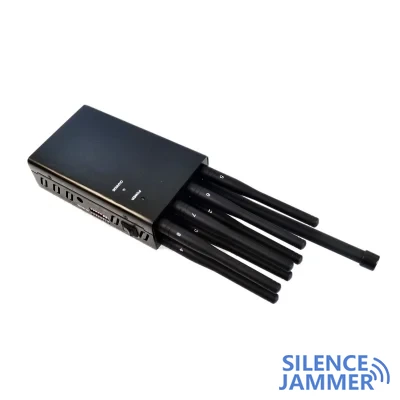Current situation in Chilean prisons
In recent years, the illegal use of mobile phones inside Chilean prisons has become increasingly serious. Although the authorities have continuously strengthened prison management and searches, it is still difficult to curb criminals from communicating with the outside world through mobile phones.
Colonel Provost pointed out that there are currently more than 1,200 active or formerly active criminal gangs in Chilean prisons, many of which are led by foreign criminal organizations, such as the Aragua Train Gang and the Mexican Sinaloa Drug Cartel, which have their cell members in Chile. These gangs use mobile phones in prisons to continue their criminal activities. Despite multiple searches and inspections by the Gendarmerie, mobile phones still enter prisons through different channels, becoming a problem that is difficult to completely eradicate.Some people wonder why mobile phone signal jammers aren't used? It seems like prison signal jammers would solve the problems currently facing prisons.

Reasons for not using jammers directly
- The range of signal suppressors often exceeds the boundaries of the prison, affecting communications outside the prison. This is especially true in urban prisons, especially Santiago No. 1 Prison, which is close to the judicial center, where prison signal jammer equipment may affect the normal communications of nearby courts, prosecutors and judges.
- The Deputy Minister of Telecommunications (Subtel) has formulated regulations that explicitly prohibit the use of mobile phone signal jammers in situations that affect communications outside the prison. Provost further explained that this wide-range interference is the main reason that prevents signal blocking technology from being widely used in prisons.
New prison cell phone suppression technology and other measures
- The Military Police has not stopped exploring technologies to solve the problem. Colonel Provost revealed an important development in the interview - a new prison signal jammer technology has been born and is being prepared for bidding. This new technology can achieve precise signal suppression, control specific areas, and will not affect communications outside the prison. According to him, this technology will first be piloted in the special high-security unit of Santiago Prison No. 1. This will be the first time that Chile has applied such advanced prison mobile phone suppression technology, and it is expected to significantly reduce the illegal activities of prisoners through mobile phones.
- According to Provost, this new technology will be officially put into use in March 2024. By then, the gendarmerie will further enhance its prison management capabilities, especially in combating gang activities in prisons and preventing illegal use of mobile phones. He pointed out in particular that the new signal jammer technology can not only accurately interfere with prisoners' communications, but also better cooperate with other monitoring measures, such as strengthening the review of defense lawyers' visits and prison raids.
- In addition to technical progress, the gendarmerie also stated that they will continue to strengthen supervision around prisons to prevent prohibited items such as mobile phones and drugs from entering prisons. At the same time, the gendarmerie will cooperate with other relevant departments to ensure that this new technology can be implemented smoothly and its effects will be regularly evaluated to ensure that it really works.
In general, Provost's announcement brings new hope for solving the problem of mobile phones in Chilean prisons. Through the introduction of new technologies, the gendarmerie hopes to more effectively prevent criminals from communicating inside and outside the prison and weaken the power of organized crime in the prison. At the same time, the gendarmerie will continue to optimize the prison management process to improve the security level of the entire prison system.





